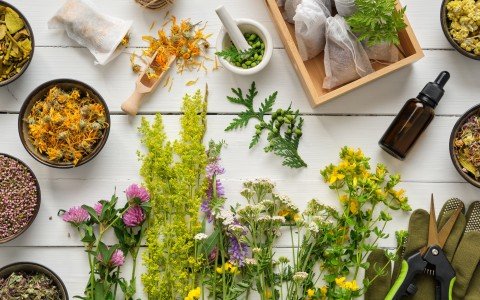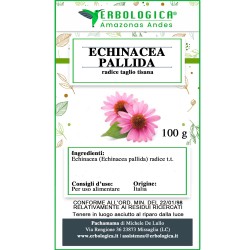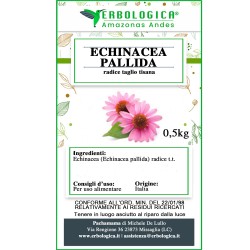
L'aumento della consapevolezza sulla salute sta spingendo sempre più persone a cercare modi alternativi e naturali per migliorare il loro benessere.
Le piante medicinali sono state utilizzate per secoli e sono ancora popolari oggi per le loro proprietà curative.
In questa guida completa, esploreremo 10 piante medicinali che hanno dimostrato di funzionare.
Dalla lenizione di dolori e dolori al rafforzamento del sistema immunitario, queste piante sono un modo naturale ed efficace per mantenere una buona salute.
Forniremo tutte le informazioni necessarie su ogni pianta, compresi i suoi benefici, come usarla e le precauzioni da prendere.
Quindi, che tu sia un esperto di erboristeria o stia solo iniziando a esplorare il mondo delle piante medicinali, questa guida è per te.
Scopriamo insieme l'incredibile potere curativo di queste 10 piante medicinali!
Introduzione alle cure naturali e alle piante medicinali
Nel corso della storia, l'uomo ha utilizzato le piante medicinali per guarire e lenire una vasta gamma di malattie e disturbi.
Le piante medicinali hanno una lunga tradizione in molte culture e sono ancora utilizzate oggi in tutto il mondo.
In effetti, molte delle sostanze sintetiche utilizzate nella medicina moderna sono state originariamente isolate dalle piante medicinali.
Le piante medicinali sono un'opzione eccellente per coloro che cercano un approccio naturale alla cura della salute e possono essere utilizzate in molte forme, tra cui tisane, capsule e unguenti.
La storia delle piante medicinali e il loro utilizzo nella medicina tradizionale
Il primo utilizzo delle piante medicinali risale a migliaia di anni fa, quando le piante venivano utilizzate per guarire ferite, alleviare il dolore e curare le malattie.
Antiche culture come quella cinese, la greca e l'indiana hanno sviluppato sistemi di medicina basati sulle piante che sono ancora utilizzati oggi.
Per secoli, le piante medicinali sono state la principale fonte di cura per l'uomo.
Con l'avvento della medicina moderna, molte piante medicinali sono state studiate e isolate i principi attivi che le rendono efficaci.
Oggi, le piante medicinali sono una componente importante della medicina alternativa e sono utilizzate per trattare una vasta gamma di condizioni.
I benefici dell'utilizzo di piante medicinali per la guarigione
Ci sono molti benefici nell'utilizzo di piante medicinali per la guarigione.
Innanzitutto, le piante medicinali sono naturali e non contengono sostanze chimiche sintetiche.
Inoltre, molte piante medicinali hanno effetti collaterali minimi o nulli rispetto ai farmaci sintetici.
Molte piante medicinali hanno proprietà antinfiammatorie e antiossidanti, che possono aiutare a prevenire molte malattie croniche come il cancro e le malattie cardiovascolari.
Infine, molte piante medicinali sono facilmente disponibili e a basso costo, il che le rende accessibili a tutti.
Come le piante medicinali agiscono nel corpo
Le piante medicinali contengono sostanze chimiche naturali, come alcaloidi, flavonoidi e terpenoidi, che hanno effetti benefici sul corpo.
Quando una persona assume una pianta medicinale, queste sostanze chimiche vengono assorbite dal corpo e interagiscono con il sistema nervoso, il sistema immunitario e il sistema endocrino.
Le piante medicinali possono anche agire come antiossidanti, proteggendo le cellule del corpo dai danni causati dai radicali liberi.
Le principali piante medicinali per la guarigione - aloe vera, zenzero, curcuma, lavanda ed echinacea
Ci sono molte piante medicinali che possono essere utilizzate per la guarigione, ma in questa guida ci concentreremo su 5 delle più popolari e studiate:
aloe vera, zenzero, curcuma, lavanda ed echinacea.
Aloe Vera
L'aloe vera è una pianta succulenta che cresce in molte parti del mondo.
La polpa delle foglie contiene un gel che può essere utilizzato per lenire la pelle irritata e guarire le ferite.
L'aloe vera ha proprietà antinfiammatorie e antibatteriche ed è utilizzata per trattare una vasta gamma di condizioni, tra cui ustioni, psoriasi e acne.
Zenzero
Lo zenzero è una radice che viene utilizzata da secoli per le sue proprietà curative.
Lo zenzero ha proprietà antinfiammatorie e antiossidanti ed è utilizzato per trattare una vasta gamma di condizioni, tra cui nausea, mal di testa e dolori articolari.
Curcuma
La curcuma è una spezia che viene utilizzata in molte cucine del mondo.
La curcuma ha proprietà antinfiammatorie e antiossidanti ed è utilizzata per trattare una vasta gamma di condizioni, tra cui artrite, mal di testa e disturbi digestivi.
Lavanda
La lavanda è una pianta che viene utilizzata per le sue proprietà calmanti e rilassanti.
L'olio essenziale di lavanda è utilizzato per trattare l'ansia, il dolore e l'insonnia.
Echinacea
L'echinacea è una pianta che viene utilizzata per rafforzare il sistema immunitario e prevenire le infezioni.
L'echinacea è utilizzata per trattare il raffreddore, l'influenza e altre infezioni respiratorie.
Come incorporare le piante medicinali nella tua routine quotidiana
Ci sono molte modi per incorporare le piante medicinali nella tua routine quotidiana.
Puoi prendere integratori a base di piante, bere tisane o utilizzare olio essenziale.
È importante ricordare che ogni pianta ha dosaggi e modalità d'uso specifici, quindi assicurati di seguire le indicazioni sulla confezione o consultare un professionista della salute.
Integratori e tisane a base di piante medicinali
Gli integratori a base di piante medicinali sono disponibili in capsule, compresse e polveri.
Le tisane sono un altro modo popolare per utilizzare le piante medicinali.
Le tisane possono essere fatte con le foglie, i fiori o le radici della pianta e possono avere molteplici benefici per la salute.
Precauzioni e potenziali effetti collaterali dell'utilizzo di piante medicinali
Anche se le piante medicinali sono generalmente considerate sicure, ci sono alcune precauzioni da prendere.
Alcune piante medicinali possono interferire con i farmaci, quindi è importante consultare il proprio medico prima di utilizzare qualsiasi pianta medicinale.
Alcune persone possono anche essere allergiche a determinate piante medicinali, quindi è importante fare una prova di sensibilità prima di utilizzare una nuova pianta medicinale.
Il futuro delle cure naturali e delle piante medicinali
Le piante medicinali sono una componente importante della medicina alternativa e il loro uso sta diventando sempre più popolare in tutto il mondo.
Con la crescente consapevolezza sulla salute e la ricerca scientifica continua, è probabile che le piante medicinali diventino sempre più importanti nella cura della salute.
Conclusioni e riflessioni finali
Le piante medicinali sono un'opzione eccellente per coloro che cercano un approccio naturale alla cura della salute.
Ci sono molte piante medicinali che possono essere utilizzate per la guarigione, ma è importante ricordare che ogni pianta ha dosaggi e modalità d'uso specifici.
È importante consultare un professionista della salute prima di utilizzare qualsiasi pianta medicinale.
Le piante medicinali sono una componente importante della medicina alternativa e il loro uso sta diventando sempre più popolare in tutto il mondo.
Con la crescente consapevolezza sulla salute e la ricerca scientifica continua, è probabile che le piante medicinali diventino sempre più importanti nella cura della salute.



